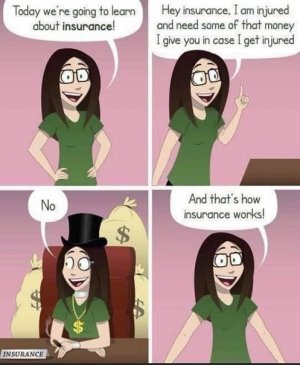Alligatorob
SF VIP
I suspect in the end it may be high insurance rates that drives us to only building and living in safe places. Part of this problem has been created by our poorly thought out flood insurance thing.
Unaffordable insurance is not a very good way to regulate where and what people build, but in the end it could be what we do.
Average home insurance rates have risen to almost $8,000 in Florida with other states like Oklahoma and Louisiana not far behind.
Across the country, premiums are expected to rise 9% this year to an average of $1,784 nationally, after jumping 7% in 2022, according to Insurify, an insurance comparison site.
The increases are far larger in the most at-risk places, such as Louisiana, where Insurify estimates that home insurance costs average more than $5,000 annually, up more than 65% since 2021.
The crisis has forced a dramatic expansion in state-backed plans, which are funded by taxpayers and are often some of the highest cost options.
The situation has left many in the US - where, as in the UK, home insurance is typically required if you have a mortgage - facing desperate choices.
Louisiana resident Teddy Mars says he withdrew $12,000 from retirement savings last month to help cover a jump in his insurance costs.
Who will buy my house if they can't get insurance
https://www.bbc.com/news/business-66367224
Unaffordable insurance is not a very good way to regulate where and what people build, but in the end it could be what we do.
Average home insurance rates have risen to almost $8,000 in Florida with other states like Oklahoma and Louisiana not far behind.
Across the country, premiums are expected to rise 9% this year to an average of $1,784 nationally, after jumping 7% in 2022, according to Insurify, an insurance comparison site.
The increases are far larger in the most at-risk places, such as Louisiana, where Insurify estimates that home insurance costs average more than $5,000 annually, up more than 65% since 2021.
The crisis has forced a dramatic expansion in state-backed plans, which are funded by taxpayers and are often some of the highest cost options.
The situation has left many in the US - where, as in the UK, home insurance is typically required if you have a mortgage - facing desperate choices.
Louisiana resident Teddy Mars says he withdrew $12,000 from retirement savings last month to help cover a jump in his insurance costs.
Who will buy my house if they can't get insurance
https://www.bbc.com/news/business-66367224


